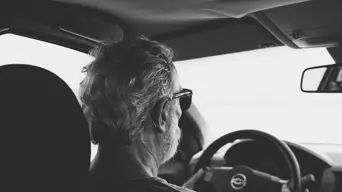How to tell when your parents or grandparents should put the brakes on driving
Chante Ho Hip
15 October 2025 | 13:11While there is no legal age restriction stipulated at which you should stop driving, there comes a time when you need to call it quits.

Photo: Unsplash/Facu Montanaro
For many older adults, driving is not simply a way to get around but also a symbol of independence and personal control.
This makes it challenging to have conversations about when they should stop driving.
While there is no legal age restriction stipulated at which you should stop driving, there comes a time when you need to call it quits.
There are unavoidable signs of ageing, such as reduced vision, impaired hearing, slower reflexes, and declining health.
According to transport risk and accident specialist Stan Bezuidenhout, the common challenges with these types of discussions are that elderly people become very stubborn about their independence, and children find it very difficult to tell their parents what to do.
“There is only one way to approach this: rip off the band aid… It has to happen,” he says.
Bezuidenhout shares warning signs to look out for:
Times when they veer off route and can’t understand why.
Any indicators of stressed driving, such as driving very slowly or prolonged waiting when there are no oncoming cars.
If they begin making excuses to drive, they may be trying to convince themselves they remain competent drivers.
Near misses and mishaps
He advises using a vehicle tracker and proactively arranging eyesight tests for your parent or grandparent.
“When you see those early indicators of near misses… it could have been disastrous. If we don’t detect how often that happens, you don’t know how close to disaster you are,” he adds.
To listen to Stan Bezuidenhout, transport risk and accident specialist, in conversation with 947’s Anele and The Club, click the audio below:
Get the whole picture 💡
Take a look at the topic timeline for all related articles.

















